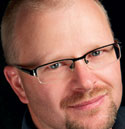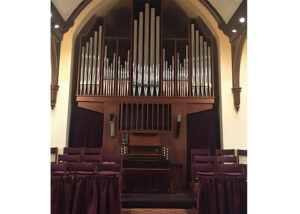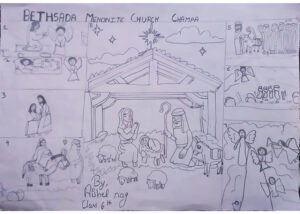I have underestimated its presence. I know I have. I miss it routinely although it is all around me: in front of me, even in my very arms.
My little boy has a cold and unceremoniously sneezes snot over my cringing face; he has it. That guy on the bus who can’t sit still while playing with a cigarette as he craves the next stop; he has it. That woman with chipped teeth who won’t get the right medication she needs because she is painfully aware of her addictive tendencies; she has it. That well-dressed woman, that sharp-dressed man, both flustered at the tedious slow tide of traffic; they have it, too. All these, and oh so many more, bear the image of the Holy One.
How is it that I miss it? Do you miss it? It can be easy to lose sight of with toddler-snot in your eye, or a plank of judgment, or simply because that image has become a clouded visage as a result of the stuff of life and the shrapnel of sin.
However, as one redeemed and recreated in Christ, who is learning what the Imago Dei means by the counsel and convicting of the Holy Spirit, I can no longer excuse my blindness, innocent or otherwise:
- To care for my sick child, even to discipline him, is to lend a hand in bringing about a more clear likeness of the holy.
- To chat with the guy with the cigarette is to converse with one who is meant to bring God’s reflection into my world as much as I.
- To find a way to help the woman with the crooked teeth is to bring dignity to one of whom the Lord said, “Let us make them in our image.”
- To call the well-dressed ones to repent and follow Jesus is to invite them to look for something even better in the mirror.
To heed the Spirit’s leading in all of this is to be God’s reflection, his “icon” as theologian Nicholas Wolterstorff puts it. It is to become more fully myself. It is to understand what the New Testament means in this: “I have been crucified with Christ. It is no longer I who live, but Christ who lives in me” (Galatians 2:20).
I am increasingly convinced that much of what we do each day and much of what we do as churches would be revolutionized by rethinking what we consider sacred space. If we are made in the image of God, if Jesus in whom the fullness of God dwelt died and rose again in the body, if the body is meant to be the temple of the Holy Spirit, then holy space is wherever there are people.
If this is the case, then we who know this have a responsibility to be participants with the Spirit of God in treating this space with dignity, respect, honour and eternal concern, in order that what may only be a holy trickle can become a stream of living water welling up from within (John 4:14). Holiness is simply the image of God leaking out more and more, and in a gloriously mysterious way we who know Christ are participants in making these most precious of holy spaces more leaky.
Phil Wagler smiles at the thought of God using snot to make you see more clearly. He does not recommend this leaky remedy. Reach him at phil_wagler@yahoo.ca.







Leave a Reply
You must be logged in to post a comment.